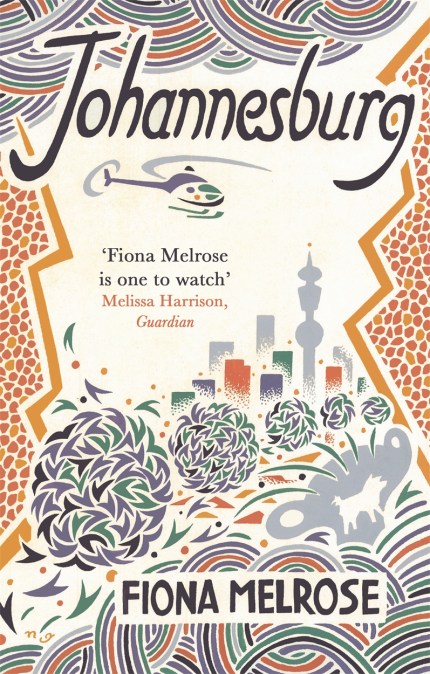6 December 2013. Johannesburg.
Gin has returned home from New York to throw a party for her mother’s eightieth birthday; a few blocks away, at the Residence, Nelson Mandela’s family prepare to announce Tata’s death…
So begins Johannesburg, Fiona Melrose’s searing second novel.
An irascible mother, an anxious daughter trying to negotiate her birthplace and her past, her former lover, their domestic workers, a homeless hunchback fighting for justice, a mining magnate, a troubled novelist called Virginia – these are the characters who give voice to the city on a day hot with nerves and tension and history.
Set across the course of a single day – that of Nelson Mandela’s death – Melrose’s second novel is a hymn to an extraordinary city and its people, an ambitious homage to Virginia Woolf’s Mrs Dalloway, and a devastating personal and political manifesto on love.
Gin has returned home from New York to throw a party for her mother’s eightieth birthday; a few blocks away, at the Residence, Nelson Mandela’s family prepare to announce Tata’s death…
So begins Johannesburg, Fiona Melrose’s searing second novel.
An irascible mother, an anxious daughter trying to negotiate her birthplace and her past, her former lover, their domestic workers, a homeless hunchback fighting for justice, a mining magnate, a troubled novelist called Virginia – these are the characters who give voice to the city on a day hot with nerves and tension and history.
Set across the course of a single day – that of Nelson Mandela’s death – Melrose’s second novel is a hymn to an extraordinary city and its people, an ambitious homage to Virginia Woolf’s Mrs Dalloway, and a devastating personal and political manifesto on love.
Newsletter Signup
By clicking ‘Sign Up,’ I acknowledge that I have read and agree to Hachette Book Group’s Privacy Policy and Terms of Use
Reviews
To say Fiona Melrose's new book Johannesburg is ambitious is an understatement. But she pulls off a stream-of-consciousness success, following a single day in the South African capital through the eyes of everyone from an expat artist to a homeless hunchback. Kudos.
Beautifully observed . . . Together, these varied voices bear witness to the experience of living in a complicated city.
Woolf produced blooms that are impossible to emulate. Johannesburg provides evidence of a novelist who can grow inimitable flowers herself.
Melrose takes a seemingly ordinary day and renders it into something poignant and moving
Following the interlinked lives of a handful of Johannesburg residents, this is an ambitious, beautifully written novel that seems to sing.
Melrose portrays [the city] beautifully, full of grace, colour and even fear.
Delicate yet devastating . . . Melrose beautifully captures the simmering, shimmering city and the vivid characters that walk its tense streets.
Melrose can undoubtedly write . . . what emerges is her original depiction of modern Johannesburg - a beautiful, violent, unforgiving place that is a social reality and a state of mind.
Melrose beautifully describes the South African city's streets and the longing in the hearts of the characters who travel them . . . A mesmerising homage to Virginia Woolf's Mrs Dalloway.
The pages fly by. Clearly written from the heart, in it we can find much of our own lives, regardless of the setting. Melrose paints the city beautifully, full of grace, colour and even fear.
With Johannesburg, Melrose enters a widely travelled literary territory and makes it her own. It is a fine novel and Melrose is fast on her way to establishing herself as one of the most fascinating, versatile novelists of our time and place.
An insightful portrait of a city and country grappling with demons past and present
Moving . . . The reader gets a real picture of this fascinating country and its people.

